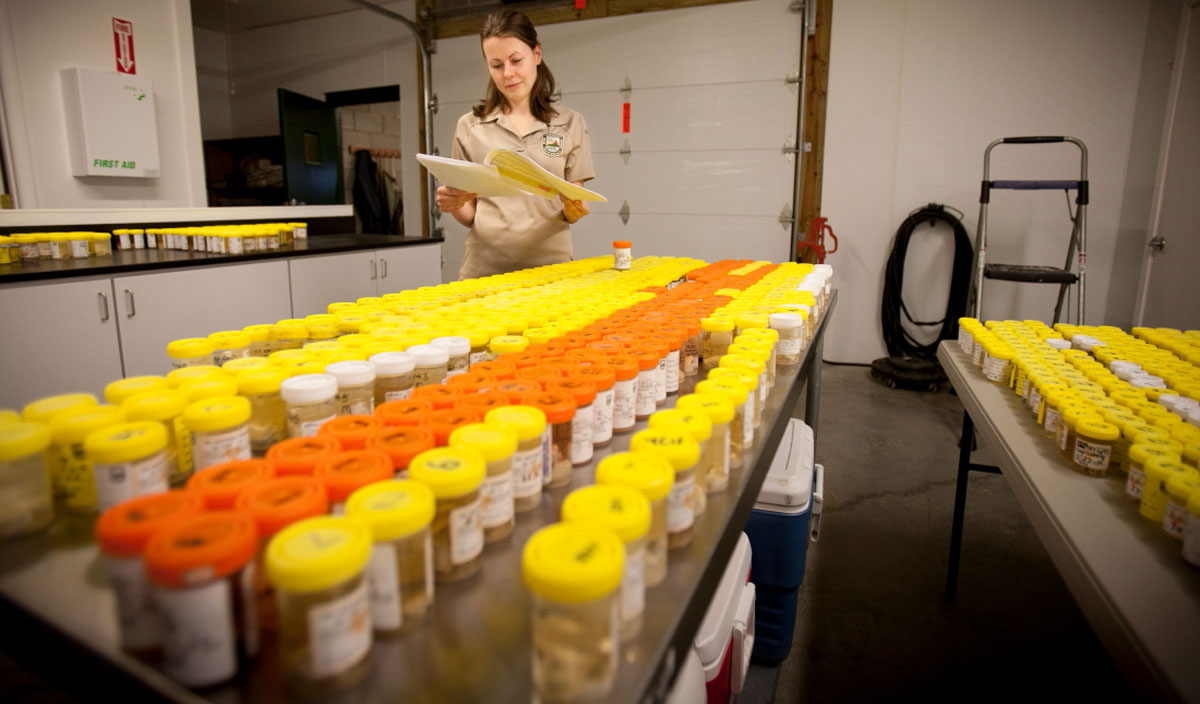Kentucky took yet another step in its decade-long effort to keep Chronic Wasting disease from penetrating its border and infecting the state’s deer and elk herds.
The move – to prohibit hunters from bringing any harvested deer, elk, moose or caribou (cervids) into Kentucky unless the brain and spinal cord have been removed – came shortly after a preliminary positive detection of chronic wasting disease (CWD) in 10 white-tailed deer in southwest Tennessee. Hunters who legally harvested a deer in that area and brought it into Kentucky before the expanded ban went into effect were not in violation of the law.
“It’s on our doorstep and ringing the door bell,” said Gabe Jenkins, Deer and Elk Program Coordinator for Kentucky Fish and Wildlife. “As an agency, we will continue to do everything we can going forward to protect our deer and elk herds from this disease.”
Tennessee’s detection was since confirmed.
In Kentucky, statewide surveillance to monitor for the disease in deer and elk has been ongoing since 2002 with close to 30,000 samples tested to date. So far, the efforts have paid off. Chronic wasting disease has not been detected in Kentucky. On a national level, however, there are now more states with CWD than not.
Hunters may bring into Kentucky quarters or other portions of meat with no part of the spinal cord or head attached, boned-out meat, antlers, antlers attached to a clean skull plate, a clean skull, clean teeth, hides and finished taxidermy works.
Find more information here.
(Photo source: Kentucky Department of Fish and Wildlife)
